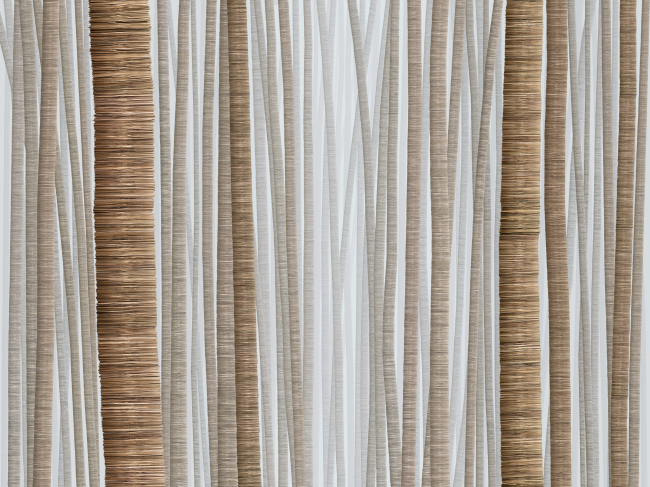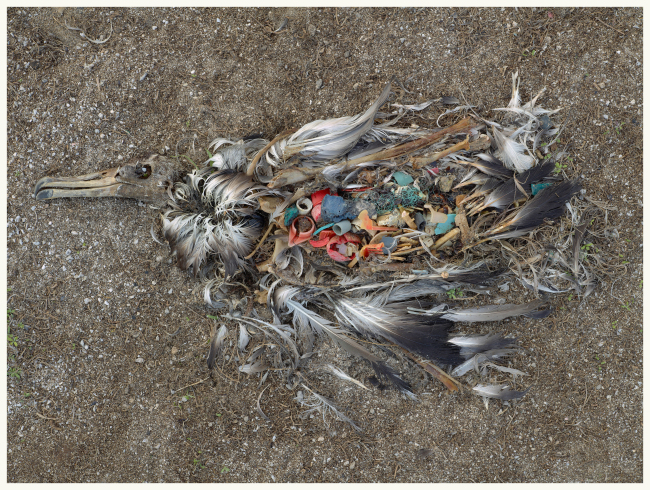Photographer Chris Jordan urges to people to face environmental crisis
Environmental issues are an urgent matter that only this generation can address, according to photographer Chris Jordan.
“We don’t have enough time to wait for the next generation to make the changes. There is a tremendous urgency. It has to be this generation who makes the changes to our behavior in a lot of different ways to protect life as we know it,” Jordan said during a press conference held Wednesday at the Sungkok Art Museum in downtown Seoul.
The museum is holding a solo exhibition of 64 works by Jordan, including “Midway: Message from the Gyre,” a series of photos of dead albatrosses and the colorful plastic they ingested.
 |
“Paper Bags” (2007) depicts a stack of 1.14 million brown paper bags -- the number of paper bags used in the US every hour. (Courtesy of the artist) |
In explaining his works, Jordan prioritized emotional engagement as the key to resolving the imminent threats to the environment.
“I think one of the biggest problems facing the environmental community right now is that we are only bringing very small actions. We know that problems are much bigger than that. The challenge is how we make a change on the scale of problems, so that they can actually be solved. We know we have all of the technologies already. The missing piece is not out there but in our hearts and minds,” Jordan said.
“I believe that we act when we feel something. That’s what connects us with the world. If we are disconnected from something, if we don’t feel anything, we don’t act, and we have no motivation to change,” Jordan said, adding that the arts can help people engage emotionally with environmental issues.
 |
“Midway: Message from the Gyre” series (Courtesy of the artist) |
“I think art right now has potential to play an incredibly important role in the healing of human culture,” Jordan said. “Art reconnects us with something on a deeper level and brings us back home, to our essential state of being.”
Jordan was a lawyer before radically changing his path.
“One thing about being a lawyer that made it a lot easier was that I was safe. I always knew what I was going to do the next day and the next year. I knew how my income would happen, and I could make an easy map of how life would go,” Jordan said.
Leaving the legal profession was like “jumping off the cliff,” he said.
“My friends who were lawyers kept telling me, ‘Well, if you fail as an artist, you can always come back and be a lawyer again. So I went into the lawyers’ association, and I turned in my license to practice law because I wanted to force myself on the path of being an artist,” Jordan said.
Jordan explained that he would continue his work to uncover neglected environmental issues and make them visible.
“I think one of the most challenging things for all of us is to try to comprehend these issues that are essentially invisible to us, like the carbon being released into the atmosphere is invisible and the pollution in our ocean is invisible,” he said.
“We can’t see the catastrophe we are creating in our world that is threatening life in the future. So it is very important to find ways to visualize and really understand what the scientists are telling us.”
By Shim Woo-hyun
(w
ws@heraldcorp.com">s@heraldcorp.com)









![[Today’s K-pop] Blackpink’s Jennie, Lisa invited to Coachella as solo acts](http://res.heraldm.com/phpwas/restmb_idxmake.php?idx=644&simg=/content/image/2024/11/21/20241121050099_0.jpg)